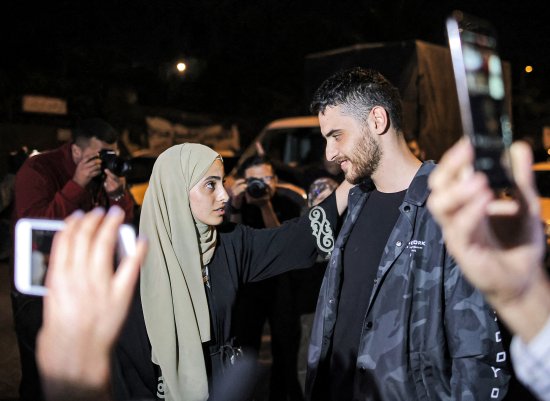
Through online posts and media appearances, sibling activists Mohammed and Muna El-Kurd provided the world with a window into living under occupation in East Jerusalem this spring—helping to prompt an international shift in rhetoric in regard to Israel and Palestine.
For more than a decade, the El-Kurd family, along with dozens of their neighbors in the Sheikh Jarrah neighborhood, has been fighting against the possibility of forced removal from their homes by Israeli settlers. In May, tensions in Sheikh Jarrah spilled into the nearby Old City, where Israeli forces attacked worshippers at the al-Aqsa mosque; Hamas militants in Gaza responded with rocket fire into Israel. Mohammed and Muna El-Kurd—who were temporarily detained by Israeli authorities this summer—challenged existing narratives about Palestinian resistance through viral posts and interviews, humanizing the experiences of their neighbors and pushing back against suggestions that violence was being predominantly carried out by Palestinians. Charismatic and bold, they became the most recognizable voices of those threatened with losing their homes in Sheikh Jarrah. Around the world, their grassroots organizing helped inspire the Palestinian diaspora to renew protests. And in the U.S., long Israel’s strongest ally, polls show growing support for Palestinians, so far without any cost to public support for Israel.
Mansoor is a TIME reporter